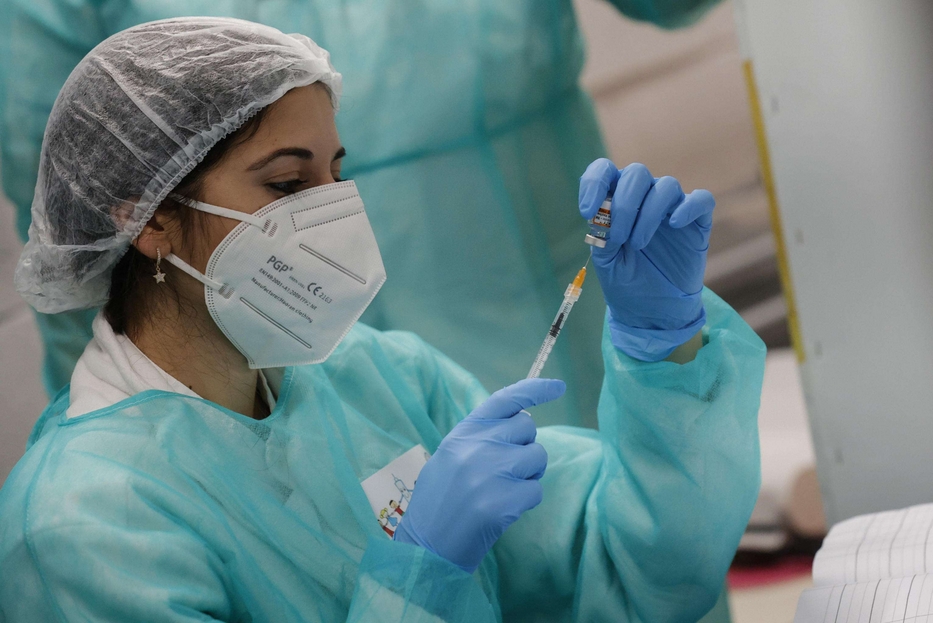How to manage the pandemic ahead of winter. Meanwhile, a new record of vaccinations for Covid: over 34 thousand doses are administered on Wednesday – Ansa
Here we go again. A new wave is starting with hospitalizations in constant increase. Some continue to downplay by saying that many are hospitalized “with Covid 19”, as if this does not represent a huge problem for patients and healthcare professionals, but it is important to note that Germany’s numbers are reported exclusively as “for Covid 19 ”and are worrying. In other words, not only are infections on the rise, but serious illnesses as well. Interestingly, no new subvariants are driving this wave, as most cases are still the “old” BA.5. This means that the culprits are the decrease of immunity and the change of behaviors, both of individuals and of institutions. This is worrying because the subvariants are brewing. They make up only a small percentage of cases so far, but they are gaining ground; historically, we feel their impact when they make up about 30-50% of cases. These sub-variants will eventually add fuel to the fire.
Problems arise from decreased immunity and changes in behavior
New German cold season measures include mandatory Ffp2 masks in hospitals, nursing homes, doctors’ offices and on long-distance trains and buses
Currently, we have a mix of many different Omicrons on the horizon trying to dominate space. Each sub-variant has a growth advantage of around 10% over BA.5, which means it has the ability to create a wave, but not a tsunami, and this leads governments to let their guard down and please their citizens by not taking precautionary measures, but leaving the task of defending themselves against the virus to individuals, with one exception, Germany. The new German cold season measures that have just entered into force include mandatory Ffp2 masks in hospitals / nursing homes / doctors’ offices and on long-distance trains and buses for the whole country, with the possibility for each Land to make them mandatory on regional public transport, in public places and in schools.
The price of “living with Covid” in free and open societies is turning out to be much higher than expected. Even with good vaccines and treatments, this year’s death toll is already many orders of magnitude higher than that of the other virus that circulates every year, the flu. In the US, a terrible flu season kills about 50,000 people, but already more than 226,000 have died from Covid in 2022 – and even if another wave is avoided and the victims remain at their current level (more than 400 per day!) , another 150,000 lives could be lost in the next 12 months. A similar trend is likely to occur also in Italy due to millions of citizens who have not yet taken the “fourth dose”, despite the offer from the Regions there for some months.
Then there is the staggering price of the Long Covid. The ongoing transmission, although more like a slow burn than a wildfire, will mean that the number of patients with long-lasting symptoms will continue to rise. In the US, Long Covid has already pushed up to 4 million people out of the workforce, according to a recent report by the Brookings Institution; in England there are almost 2 million and of these over 200,000 are health workers, repeatedly infected by citizens and patients in hospital without a mask. As public concern over Covid fades and funding runs out, it will become even more difficult to stem this pandemic. Governments have invested most of the resources to understand the causes of Long Covid. This is essential work, but very little is devoted to studying how to treat and prevent Long Covid.
These patients deserve better. THE Centers for Disease Control and Prevention Americans estimate that 1 in 5 people who contract the virus suffer from persistent symptoms. Some recover slowly, but others see their quality of life drastically reduced for months or even years. The only things that can keep this pandemic under control are better vaccines and treatments. But as society moves out of the emergency phase, both could become more difficult. We see the increasingly challenging task of developing new vaccines. Infectious disease experts have supported the development of universal coronavirus or intranasal vaccines, both approaches useful for their potential to prevent the spread of the disease and maintain efficacy in the face of new variants. Both could significantly reduce the number of people joining the ranks of Long Covid patients.
How many people with mild symptoms are still worrying to find out if it’s a cold or something else? If the tests pass, many may not even get the support they need
But in a country that is “beyond” Covid, the funding to move these projects beyond the stage of good academic ideas and into real clinical trials will run out. And with governments no longer spending billions on Covid products, companies have far fewer incentives to invest in them. All of this coincides with a much more challenging and expensive climate to bring new Covid vaccines and drugs to the finish line. One of the main problems is the growing challenge of enrolling volunteers in clinical trials. The search for volunteers for such tests also depends on whether people continue to test themselves for Covid at the first sign of a cold or cough. But how many people with mild symptoms are still worrying to find out if it’s Covid or a cold? If the tests pass, many people who have ignored a mild infection may find themselves wondering why they are struggling with brain fog or fatigue and may not even get the support they need.
Covid may no longer be a public health emergency: the days of the constant sirens of ambulances and crowded intensive care admissions seem, fortunately, behind us. But letting your guard down and failing to implement wise infection prevention and control strategies can be a huge mistake.
